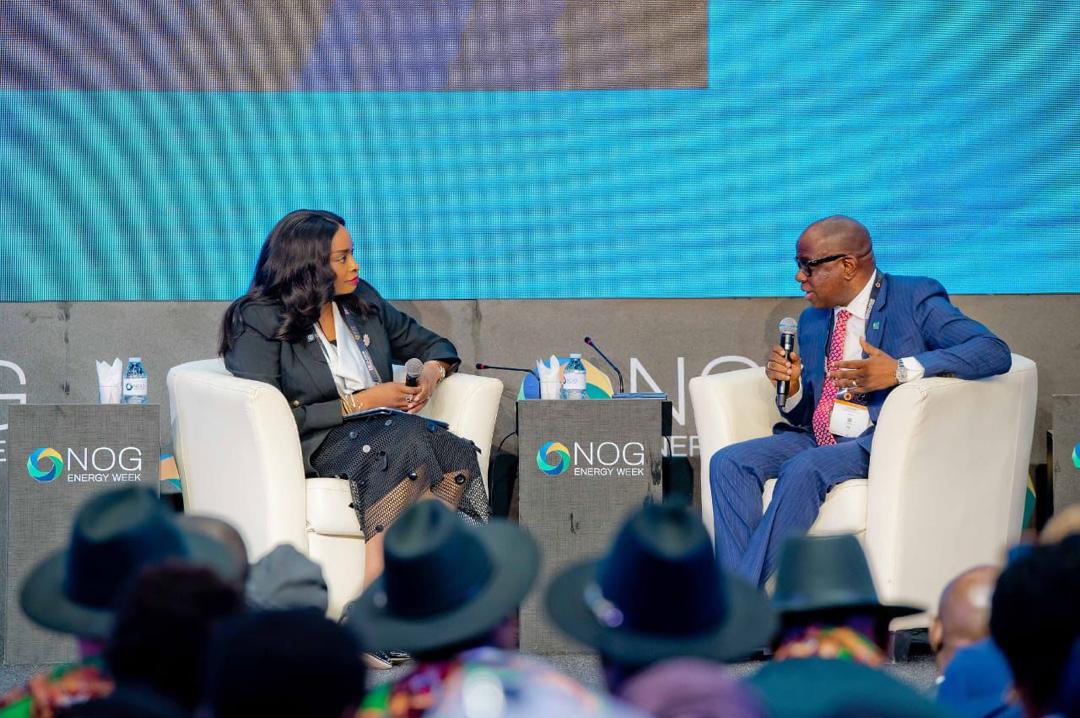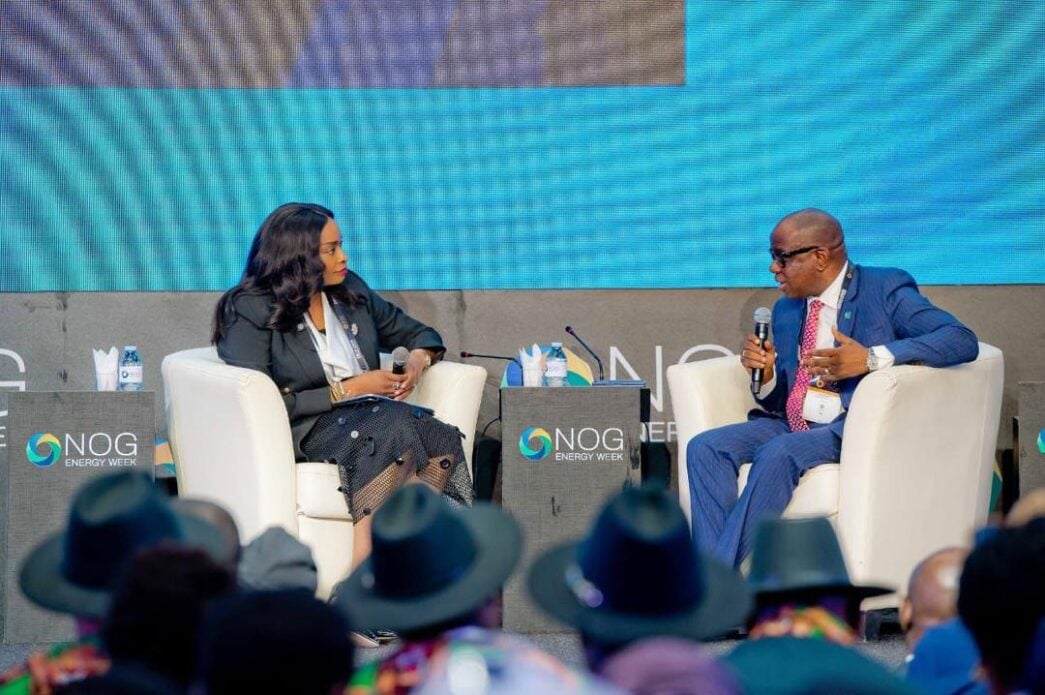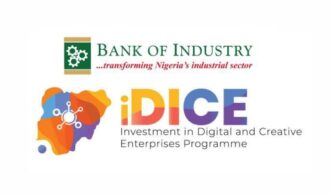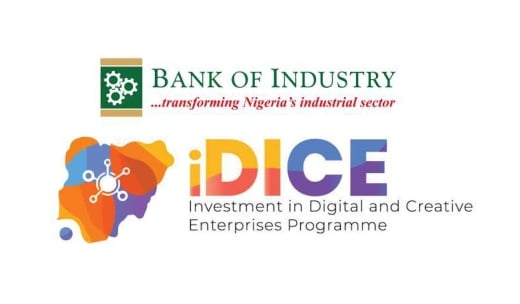At the 2025 Nigeria Oil and Gas (NOG) Conference, one of the standout moments was the CEO Fireside Chat between Rolake Akinkugbe-Filani, CEO of EnergyInc Advisors, and Engr. Bayo Ojulari, the newly appointed GCEO of NNPC Limited.
In his first formal interview since taking office, Ojulari shared his vision for transforming NNPC into a commercially driven, globally respected energy player. Drawing from deepwater and international experience, he outlined priorities including the company’s IPO path, energy transition plans, investor engagement, and the cultural shifts needed for a high-performance, accountable organisation.
1. You’ve been an international operator and a deepwater expert, your achievements on Bonga are well known at Shell. You were also an onshore veteran, you know what works and what doesn’t, which makes your $60 billion ambition a credible one, but credible and achievable are not the same. Can you walk us through your strategic imperatives, what’s different this time?
The President has made an unprecedented move, as referenced by the Honourable Ministers. In my 30 years in the industry, I’ve never seen a board like this — composed of seasoned professionals with strong private sector track records. He’s also appointed a management team with similar private sector experience to move NNPC forward.
A key enabler of this transformation is the Petroleum Industry Act (PIA), which has created an enabling environment. The focus now is implementation — and doing so with urgency.
NNPC has long been seen as a giant, but that perception has been challenged. Many state-owned enterprises globally have struggled — this is not unique to Nigeria. We’ve seen examples like NITEL and Nigerian Railways. Everyone wants value from government entities, but few want to invest in sustaining them. Everyone wants the golden eggs, but no one wants to feed the goose. That must change.
NNPC is now transitioning into a limited liability company. The PIA has also laid the foundation for a future IPO and joint venture structure. It’s a bold mandate to build differently.
We’re now operating like a private company — paying taxes, royalties, and dividends — and using our footprint strategically. One key move is repositioning NEPL into a premier exploration and production company. With the coalition we’re building, including IPPG, we can deliver on this.
Our second focus is “non-operator venture excellence.” ExxonMobil managed 60% of its portfolio through non-operated ventures with strong technical oversight. We are transforming NUIMS into a globally respected version of that model.
We are rebuilding technical excellence. Over time, core skills in engineering and subsurface work have eroded. Too much has revolved around contracting. We’re changing that — seconding staff to IOCs and bringing in talent to reshape the organisation. Currently, 15 secondees are already working with us.
The market is responding. I have over $2 billion in proposals on my desk. But our financing strategy has changed. Historically, we raised funds by pledging barrels. Now, the conversation is different. I’ve told African and global banks — if you want to do business with us, come with proposals that finance incremental growth.
We are moving away from forward-selling barrels with no clear return. We want honest partnerships that co-invest and share in the upside of growth. These shifts — in structure, strategy, and culture — are positioning NNPC for a complete transformation.
2.”You’ve made impressive strides – 100% pipeline availability, gas infrastructure progress, and the release of monthly financials. What key operational reforms and transparency measures have enabled this momentum, and how are they tied to your broader IPO strategy and timeline?”
On the operational front, the present administration of President Bola Ahmed Tinubu, the Honourable Ministers, the people I have met at NNPC, and, in all honesty, other captains of industry have not been sleeping. It would be wrong to suggest that we came in and did everything. Absolutely not. There were fundamental things and solid foundations already laid, which we were able to build on very quickly.
Let me explain what we built on. The security structure put in place by the Federal Government and NNPC was already operational before I came on board, though I didn’t fully grasp its depth at the time. Recall that just two years ago, production had plummeted to around half a million barrels, and operators were urging the government to take charge of security. To its credit, government acted — and while not perfect, the framework has helped stabilise the Niger Delta.
What we now need to do is tighten collaboration between operators, ourselves, and the security infrastructure that’s been established. That alignment is critical. Another key area, as the Ministers also mentioned, is collaboration with joint venture operators. Some of the recent production improvements are from Renaissance. We’re seeing more from NEPL, with more still to come. This has been enabled by creating an environment where we align with our partners.
What’s also changing is that NNPC has stepped away from any residual regulatory tendencies. We are not regulators, and we do not want to be seen as regulators. We also don’t want anyone hiding behind us as regulators. If there are issues, we go together with our partners to NMDPRA, to NUPRC, to the Nigerian Content Development Board hand in hand to resolve them. That’s the approach we’re taking.
Technology has played a key role. The AKK gas pipeline project, shown in the video, had been delayed for years. It’s a prime example of what’s possible when bold decisions are made. In our industry, there’s a tendency to fall into the “sunk cost syndrome,” where previous investment makes people hesitant to change course. We challenged that mindset, injected new technology and capability, and accelerated the project — with more like it underway.
More than anything, progress has come from stronger collaboration with our operating partners. That remains our most powerful lever.
On the IPO, we’ve set an ambitious 2028 target. It’s a stretch, but we’re moving steadily. We recently held a highly productive board retreat where we walked through the roadmap and received full alignment. The board even challenged us to move faster. I remember asking my CFO, “What defines IPO readiness?” He said, “When an investor meets the gateman at NNPC, they should already sense it.” That captured the essence — IPO readiness isn’t just financial, it’s cultural.
We’ve begun a deep cultural transformation focused on accountability, performance, and enabling our people. There’s real talent at NNPC — the key is unlocking it. We’re building discipline, starting with basic internal reports, and aim to release our first public quarterly report by Q3. It may not be perfect, but it’s a critical step.
We’ve also launched the “Fit for the Future” initiative, bringing in 20 professionals from the private sector to work with NNPC teams. We’ve established six workstreams, including one dedicated to defining what it takes to become market leaders and IPO-ready. This structured, practical approach is how we’re moving from aspiration to execution.
3.”With $500 million in Q1 profit and nearly $4 billion in revenue, you’re on track to rival global NOCs like Aramco and Petrobras. Are you benchmarking against these players, and how are you balancing global performance standards with Nigeria’s dual priorities of energy security and a clean energy future?”
I’ve joined a global platform for oil and gas leaders focused on the energy transition. It brings together stakeholders, including oil and gas governors, to collaborate on key issues like decarbonisation, emissions reduction, and breakthrough technologies. Just imagine a future where your car emits only water after using PMS — the possibilities are endless.
The world needs lower carbon, not just wind and solar. Renewables are important, and we’re embracing them, but we must also invest in technologies that reduce emissions from existing fuels. At NNPC, our EVP for Gas, Power, and New Energy is already leading initiatives in solar and biofuels. Our approach is pragmatic — we must generate oil revenues to develop our gas resources, then reinvest in scaling renewables.
That’s the realistic energy mix ahead of us, as the Minister rightly said. But to get there, energy security must come first. The reality in Africa is sobering — the WHO reports over 120,000 women and children die each year from inhaling smoke from dirty cooking fuels.
That statistic drives our conviction. I told the Minister recently: we may not solve every global challenge, but we can unite behind one clear goal — ensuring every household has access to clean cooking gas. That’s a mission we are deeply committed to.
In the end, leadership is about impact. It’s not about the position, but what we choose to do with it. That’s the spirit guiding our energy transition efforts — practical, people-centred, and purpose-driven.
Thank you for stepping into the hot seat and engaging so openly. They say Nigeria’s economy was built on oil, but I am positive that Nigeria’s future will be built on strong, bold, transparent, and accountable leadership.











